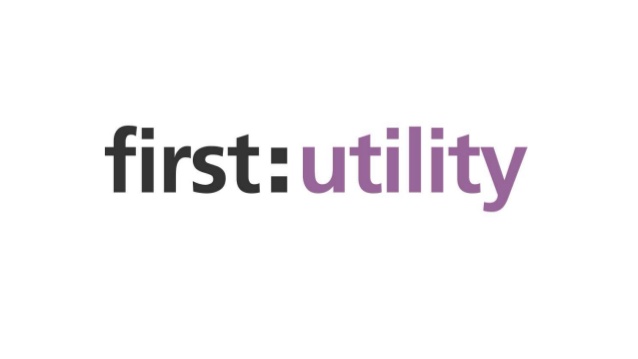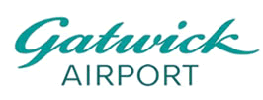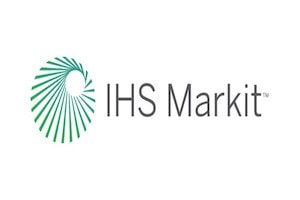Here at Sirius, we often get asked, "How does Checkmk compare to other monitoring solutions?" or "Which IT monitoring tool is best for my organization?" This is a very good question, and one that deserves a clear, honest answer. We understand the need to choose the right technology, as it's a decision a business will have to live with for years.
We want to be upfront: no single IT monitoring solution is a universal perfect fit for every organization. Checkmk distinguishes itself as a robust, all-in-one solution that provides deep visibility into hybrid IT infrastructures, and it consistently receives high praise for its professional support and ease of setup. However, its strengths and weaknesses become clearest when compared to market rivals like Datadog, Zabbix, Nagios, and the Prometheus/Grafana stack. The truth is, selecting the "best" monitoring tool often involves trade-offs between features, complexity, deployment model, and cost.
This article will provide a fiercely transparent comparison of Checkmk against these key competitors, deconstructing their architectural philosophies, feature sets, and pricing models. Our goal is to explain the nuances of each option, helping you understand their respective pros and cons, and ultimately allowing you to make the most informed decision possible for your specific needs.
Checkmk's Core Value Proposition: The All-in-One Approach
Checkmk's central value proposition is its all-in-one approach to IT infrastructure monitoring. It is designed as a comprehensive platform to seamlessly oversee applications, servers, networks, storage, databases, and containerized environments, whether on-premises or in the cloud. This contrasts with a "best-of-breed" strategy, which can lead to tool fragmentation, operational overhead, and data silos.
A critical component of this strategy is Checkmk's expansive library of over 2,000 vendor-maintained plug-ins, enabling automatic discovery and monitoring "out-of-the-box". The product suite includes the free, Open Source Checkmk Raw Edition, and proprietary Checkmk Enterprise Edition, Checkmk Cloud Edition (also SaaS), and Managed Services Provider (MSP) Edition. Automation features like the Agent Bakery, auto-discovery, and a REST API reduce administrative burden and simplify configuration at scale.
Checkmk consistently receives high praise for its professional support and ease of setup. Its "Ease of Setup" ratings are due to automation and pre-configured plug-ins, reducing initial time to value. Superior "Quality of Support" ratings stem from expert technicians with direct production experience, offering enterprise-grade assistance in English and German. However, user feedback reveals a "steep learning curve" for mastering advanced, rule-based configurations and a "confusing" user interface for intricate tasks, an area Checkmk's roadmap aims to improve.
The Competitive Landscape: Head-to-Head Analysis
Datadog vs. Checkmk: Cloud-Scale Observability vs. Hybrid-IT Management
The fundamental difference between Checkmk and Datadog lies in their architectural philosophies.
Architectural Philosophy & Deployment:
- Datadog is a cloud-native SaaS platform from its inception, providing a "streamlined, fully integrated solution" with emphasis on ease of use and instant scalability. It manages all underlying infrastructure, updates, and maintenance for the customer.
- Checkmk has historically been an on-premises solution, offering complete data ownership and sovereignty, but placing responsibility for infrastructure management on the customer. Checkmk's recent launch of a new SaaS solution is a strategic move to directly challenge Datadog.
Feature Comparison: Observability & Monitoring:
- Datadog excels as a full-stack observability platform, seamlessly integrating logs, metrics, APM, and RUM for a unified experience. It outscores Checkmk in Performance Monitoring (9.2 vs. 8.4), Data Visualization (9.0 vs. 8.0), and Log Management (9.3 vs. 7.4). Datadog also provides deeper, AI-driven insights, reflected in superior scores for "Improvement Suggestions" (8.2 vs. 7.5) and AI/ML assistance in APM (7.3 vs. 5.7).
- Checkmk, while robust for infrastructure monitoring, lags behind Datadog in advanced observability features, real-time analytics, and AI/ML integration.
Pricing & TCO Analysis:
- Datadog's pricing model is complex and difficult to budget, based on a per-host model ($15/host/month for Infrastructure, $31 for APM), with additional costs tied to data volume and "high-water mark billing," which can lead to unpredictable cost spikes.
- Checkmk's pricing is based on a per-service model, offering greater cost predictability and transparency for forecasting monitoring needs. This can be a significant advantage for businesses seeking financial clarity.
Zabbix vs. Checkmk: Open Source Enterprise Solutions
Both Zabbix and Checkmk are leading Open Source-driven monitoring solutions, with distinct approaches.
Core Monitoring & Alerting:
- Zabbix is engineered for sheer power and scalability, designed to monitor "millions of metrics collected from tens of thousands of servers". It outperforms Checkmk in Performance Monitoring (9.2 vs. 8.6), Real-Time Analytics (9.2 vs. 6.9), and Alerting (8.9 vs. 8.7).
- Checkmk trades some of this raw power for a more polished and automated user experience.
Architectural Showdown: Proxies vs. Distributed Monitoring:
- Zabbix uses a proxy architecture where a proxy agent collects and buffers data locally at remote locations before sending it to a central server. This "push" model is resilient to network failures and ideal for "unreliable communications".
- Checkmk's traditional distributed monitoring uses a master-site architecture requiring direct communication. However, Checkmk is addressing this with new features like "Checkmk Relay" and "peer-to-peer connections" to improve data exchange in multi-site environments.
Support, Community & TCO:
- Zabbix is a "100% Open Source solution" with no license fees, making it attractive for cost-sensitive organizations. However, labor costs for implementation and management can be substantial, and professional support is a paid service with expensive consulting packages (€2,500 for 10 hours).
- Checkmk's paid editions bundle higher-rated professional support and automation features, leading to superior "Quality of Support" ratings compared to Zabbix (8.9 vs. 7.9). The investment in Checkmk's paid tiers can result in a lower TCO for organizations valuing operational efficiency and risk mitigation, reducing the need for expensive in-house expertise.
Nagios vs. Checkmk: The Evolution of an Open Source Legacy
Checkmk's origins are directly tied to Nagios, making it a direct descendant and a more user-friendly successor.
Historical Context and Architecture:
- The foundational Checkmk Raw Edition incorporates Nagios as its core.
- However, Checkmk's creators recognized Nagios's scalability limitations in large environments, leading to the development of the proprietary Checkmk Enterprise edition with its own "very high-performance core which replaces Nagios". This enabled Checkmk to overcome historical performance limitations.
Usability & Extensibility:
- Checkmk has a significant advantage in usability, with superior "Ease of Setup" (8.7 vs. Nagios XI's 6.1) and "Quality of Support" (8.9 vs. Nagios Network Analyzer's 7.4).
- Nagios, while powerful, is often considered more challenging and time-consuming to configure due to its legacy design. Checkmk built an automation layer and a more modern user interface on the same extensible foundation, making it more practical for most modern IT teams.
Prometheus/Grafana vs. Checkmk: Modular Tooling vs. Integrated Platform
This comparison highlights the debate between "best-of-breed" and "all-in-one" approaches.
Philosophical Divide:
- Prometheus is a metrics-based monitoring system with a powerful query language (PromQL), typically paired with Grafana for visualization. This modular approach offers maximum flexibility and raw power for metrics-driven, cloud-native environments, but requires significant manual effort for setup, integration, and maintenance.
- Checkmk provides a pre-assembled, unified platform integrating various monitoring capabilities out-of-the-box. This integrated approach trades some highly specialized power for a more seamless and manageable experience.
Strategic Integration:
- Checkmk has strategically accommodated the Prometheus/Grafana stack by providing native integrations for Prometheus exporters and OpenTelemetry. This allows organizations to leverage existing Prometheus investments while benefiting from Checkmk's broader infrastructure monitoring and unified dashboarding.
Synthesis and Strategic Recommendations
The selection of an IT monitoring solution is a strategic decision that should align with an organization's specific needs, architectural philosophy, and financial constraints.
Quantitative Scorecard & Feature Matrix
The G2 Feature Scorecard highlights key differences.
| Feature | Checkmk | Datadog | Zabbix | Nagios XI | Prometheus |
|---|---|---|---|---|---|
| Ease of Setup | 8.7 | 8.3 | 7.4 | 6.1 | 8.0 |
| Quality of Support | 8.9 | 8.3 | 7.9 | 7.4 | 7.8 |
| Performance Monitoring | 8.5 | 9.2 | 9.2 | 9.5 | 9.6 |
| Alerting | 8.7 | 9.3 | 8.9 | 9.1 | 8.7 |
| Data Visualization | 8.0 | 9.0 | 8.4 | 8.3 | 7.8 |
| Real-Time Analytics | 6.9 | 9.2 | 9.2 | 9.0 | 9.6 |
| AI/ML Integration | 5.7 | 7.3 | 9.0 | Not available | Not available |
Checkmk's core strengths are its "Ease of Setup" and "Quality of Support," where it outperforms all competitors. Its weaknesses are in "Real-Time Analytics" and "AI/ML Integration," lagging significantly behind Datadog and Zabbix, which underscores its infrastructure-centric focus versus more modern observability platforms.
Comparative Pricing & TCO Analysis
The financial aspect is critical, with each solution having a distinct pricing philosophy.
Checkmk's pricing is based on a per-service model, offering high cost transparency and predictability, starting at €175 per month for 3,000 services for the Enterprise Edition.
Datadog's pricing is a multi-tiered, per-unit model, driven by per-host fees, per-million events for logging, and per-GB for ingested data, leading to significant cost unpredictability and potential spikes, especially with "high-water mark billing".
Zabbix has a zero-licensing-cost model for its on-premises solution. Its TCO is heavily influenced by labor costs and expensive professional support if internal expertise is lacking. Checkmk's bundled professional support can offer a more predictable and potentially lower TCO for organizations without extensive internal expertise.
| Checkmk | Datadog | Zabbix | |
|---|---|---|---|
| Pricing Unit | Per service | Per host, per volume | No license fees |
| Starting Price | €175 per month | $15 per host per month | €0 (FOSS) |
| Key Variable Costs | Synthetic monitoring, ntopng integration, advanced support | Log ingest/indexing, API/RUM usage, host high-water mark billing | Professional services, consulting, support plans |
| Cost Predictability | High | Low | Medium (tied to internal expertise) |
Long-Term Viability & Product Direction
The long-term viability of these platforms is tied to their adaptability. Checkmk, Zabbix, and Datadog are all moving towards full-stack observability.
Checkmk has received strategic investment to accelerate global growth and advance "AI-driven full stack observability". Its roadmap emphasizes dashboarding, user experience improvements, and enhanced integrations with modern technologies like OpenTelemetry and Prometheus. The launch of a SaaS solution is a direct competitive response to platforms like Datadog.
Zabbix's roadmap for 2026 includes a focus on OpenTelemetry data collection, optimized storage engines, and complex event processing for automation and security monitoring.
While Checkmk and Zabbix currently trail Datadog in advanced observability, their roadmaps indicate active efforts to close this gap, positioning them as viable long-term investments with plans to future-proof their platforms.
Strategic Recommendations
The following recommendations are provided for different organizational profiles:
- For the Hybrid IT Operations Team: Checkmk is a compelling choice. Its all-in-one platform and high ratings for ease of setup and quality of professional support make it ideal for managing a mix of on-premises and cloud resources, prioritizing operational efficiency and risk mitigation.
- For the Cloud-Native, DevOps-Centric Team: Datadog is the leading solution. Its architectural philosophy, deep feature set, and AI-driven insights are tailor-made for dynamic, containerized environments. The convenience of a fully managed SaaS platform and its observability breadth provide a clear advantage, despite its complex cost model.
- For the Cost-Sensitive Enterprise with High Technical Expertise: Zabbix presents a powerful and cost-effective alternative. Its zero-licensing-cost model and raw scalability are significant financial benefits. However, the organization must be prepared to invest in time and expertise for implementation and maintenance, or budget for professional services.
- For Organizations Using a Legacy Nagios Stack: Checkmk is a logical and modern upgrade path. Sharing a similar philosophical foundation as a Nagios fork, Checkmk offers significant improvements in usability, automation, and performance, making it a direct, user-friendly successor.
















































